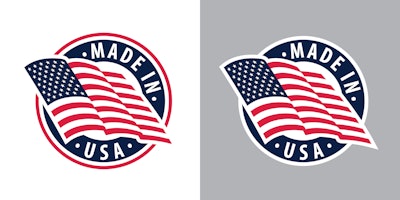
A new report, 2025 U.S. Manufacturing Technology Readiness Report: Ready to Lead?, from Integris found that while American consumers are showing renewed interest in products made in the United States, outdated technology is threatening to undermine that momentum. In fact, many U.S. factories aren’t ready for what’s next, and that reluctance to modernize is putting competitiveness, trust, and talent at risk.
“We’re not in the business of prescribing how manufacturers should build their products, but we hear from clients every day who are acutely aware that their technology isn’t keeping pace,” says Joe Fetter, director of sales at Integris. “This survey confirms their concerns: legacy systems are hampering output, compromising security, and impacting retention. The stakes are real—this is about staying competitive in the present moment.”
Key takeaways:
- 75% of U.S. consumers said they have a preference for U.S-made goods—one that has increased as a result of global supply-chain disruptions since the COVID era.
- 62% of consumers, however, said that other factors, such as quality and price, ultimately matter more in their purchase decisions.
- 91% of consumers said they are concerned about cybersecurity threats to U.S. manufacturers, with 30% saying they are “very” or “extremely” concerned.
- 51% of manufacturing employees believe U.S. factories are falling behind global competitors in technology modernization and automation.
- One in five employees say they’ve seen colleagues leave due to outdated systems.
- 57% of manufacturing managers and executives cited cost as their biggest barrier to investing in IT modernization and cybersecurity.
- More than 90% of consumer survey respondents said they would pay no more than 10% more for U.S.-made goods, and 25% said they wouldn’t pay extra at all.
- Many manufacturers face growing expectations to meet a range of cybersecurity and compliance standards, including CMMC: Cybersecurity Maturity Model Certification for those with DoD contracts; ISO 27001: Common for manufacturing cybersecurity compliance; NIST: Frequently required by supply chain partners; and HIPAA: For medical manufacturers handling protected health data.




















